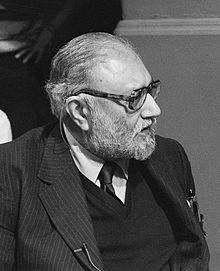Abdus Salam

Mohammad Abdus Salam [1] (29 January 1926; Santokdas, Sahiwal Punjab – 21 November 1996; Oxford, England) was a Pakistani theoretical physicist. He was awarded the 1979 Nobel Prize in Physics.[2]
He was initially educated at the Government College Lahore and the University of the Punjab, Lahore. For a time also worked at the Government College as a lecturer, adding considerably to its intellectual life. Later he went to Cambridge University, England for PhD studies. In 1951 he returned to Pakistan, but he found that he was cut off from the rest of the scientific world there. In 1953, he again went to England where he started to teach and research, having interest in the Grand Unified Theory.
He believed that if the Creator of the universe was one then the origin of all the forces had to be single also. He then set off to unify the electromagnetic and the weak nuclear force. According to another scientist, Peter Higgs, a field existed i.e. the Higgs field. Salam successfully showed that weak nuclear forces are not really different from electromagnetic forces, and two could inter-convert. Salam provided a theory that shows the unification of two fundamental forces of nature, weak nuclear forces and the electromagnetic forces, one into another.[3]
References[change | change source]
- ↑ Abdus Salam (Urdu: محمد عبد السلام)
- ↑ NobelPrize.org, "Abdus Salam"; retrieved 2012-9-19.
- ↑ Riazuddin 2006. Fifty years of parity violation and Salam’s contribution. NCP 5th Particle Physics Workship: Prof. Abdus Salam – 10th Death Anniversary (Islamabad, Pakistan: National Center for Physics): 1–32. Retrieved 2010. [1] Archived 2016-03-03 at the Wayback Machine
Other websites[change | change source]
![]() Media related to Abdus Salam at Wikimedia Commons
Media related to Abdus Salam at Wikimedia Commons
